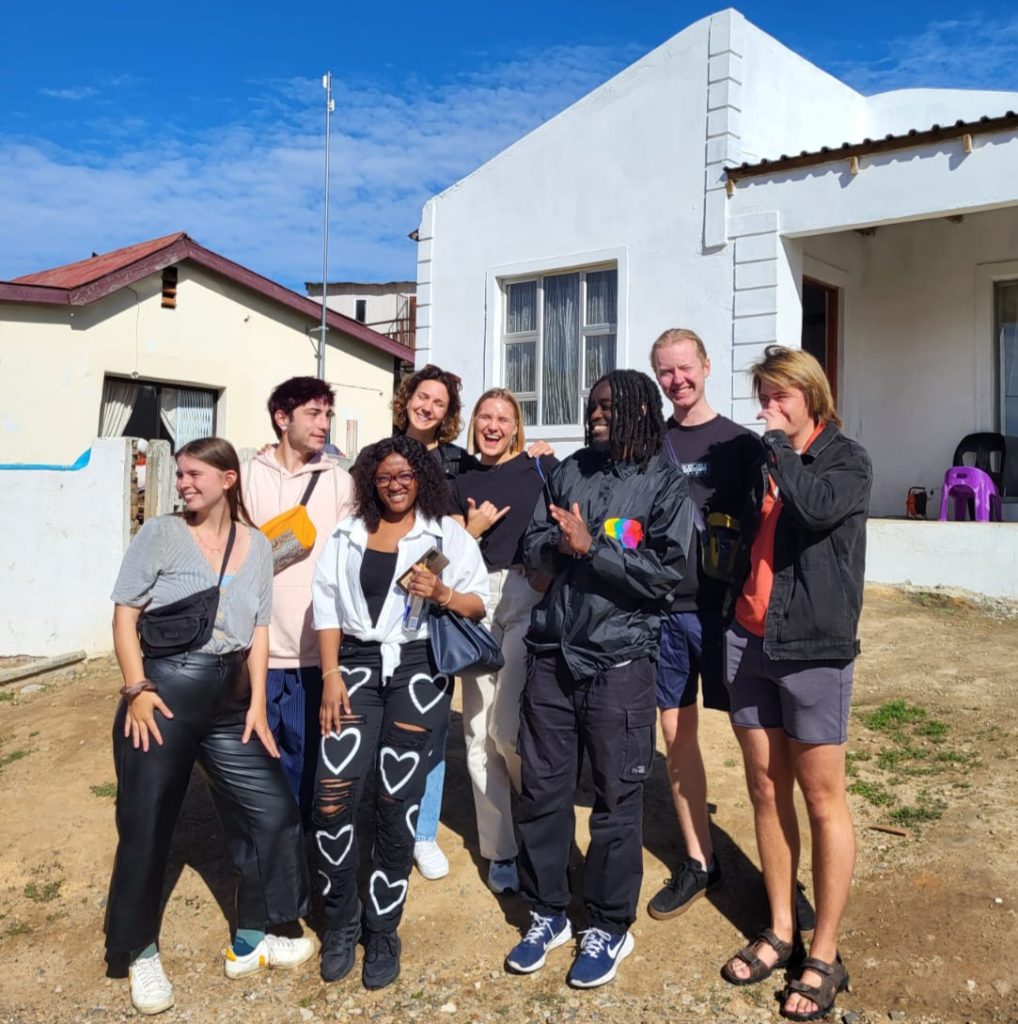How South Africa changed me

Luca Mast came home from South Africa and found his views on society profoundly changed. As a Bachelor student in English language and literature, he has a good ear for languages. In this interview, he explains why he chose to learn isiXhosa and Afrikaans, two of the many languages spoken in South Africa and how his interactions with lecturers were different from what he was used to in Switzerland.
Luca, why did you choose to study for a semester at the University of Stellenbosch?
I am fascinated by click languages, such as isiXhosa. Clicks are consonants used in many African languages. You pronounce them by creating and releasing a vacuum in your mouth. I also chose Afrikaans because I wanted to learn about the history and current use of the language. I already speak German, so Afrikaans was much easier to acquire than isiXhosa.
Is studying in Stellenbosch different compared with what you’re used to?
Stellenbosch is a university town that feels like one big campus, which is very different from what we are used to in Bern. Imagine rolling hills with vineyards and films featuring college life in the USA. Sport in general, and rugby in particular, is important to students at Stellenbosch because it represents team spirit and togetherness.
Students and staff identify with the Stellenbosch University spirit in different ways. For example, students at the University are called ‘maties’, which is the diminutive form of ‘mate’ in Afrikaans. The students and teaching staff are very open and friendly, which is how I experience the University Bern as well.
Is the relationship between students and lecturers different?
The teaching staff at Stellenbosch University are generally very supportive. However, I experienced a misunderstanding when I wrote to a lecturer pointing out that the deadline of an assignment was five years ago. I asked if it was still relevant and expected a reply saying that it had been scheduled. To my surprise, I received a very long and formal message pointing out that my criticism was unjustified because all deadlines were very clearly defined by the lecturing team.
This experience showed me that that although the personal interactions between students and lecturers in South Africa are very friendly and sometimes informal, the hierarchies between them are taken very seriously. I realised that my lecturers felt offended and criticised, which was of course not at all the intention of my email. It is almost the opposite of what I am used to in Switzerland, where personal interactions can be a bit distant, but questions from a student to a lecturer are less hierarchical.

Both countries are multilingual, how did you experience this?
Learning isiXhosa and Afrikaans opened up a new world for me. I was able to talk to people in a way that would never have been possible otherwise, like Uber drivers, cleaning staff or security guards at the university. I was able to talk to them about their language and culture because I could speak to them in their mother tongue. This allowed me to sometimes break out of the exchange student bubble and have conversations that I would never have had otherwise.
What surprised you most?
In Switzerland, we take electricity for granted. In South Africa, utility companies practice what is known as “load shedding”, turning the electricity on and off for several hours a day for each area. There is an app that tells you when and where it happens, when it does, you are left in the dark –unless you can afford a generator. For me, it made inequality much more tangible.
Has the exchange semester changed your view of your own country?
I pay for my studies and living expenses with part-time jobs in a tea shop, a bar and the university. It is difficult to combine studying and working. Sometimes I think that life would be a lot easier if I did not have to work while I was at university. In South Africa I realised how lucky I am, because in South Africa a job like mine just doesn’t pay enough to afford university. I am taking a hard road, but in a lot of ways it is still a privilege.
Text: Caspar Bienek
Images: Luca Mast